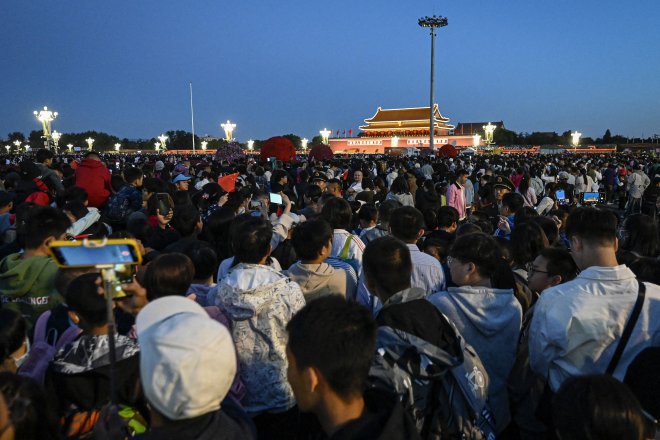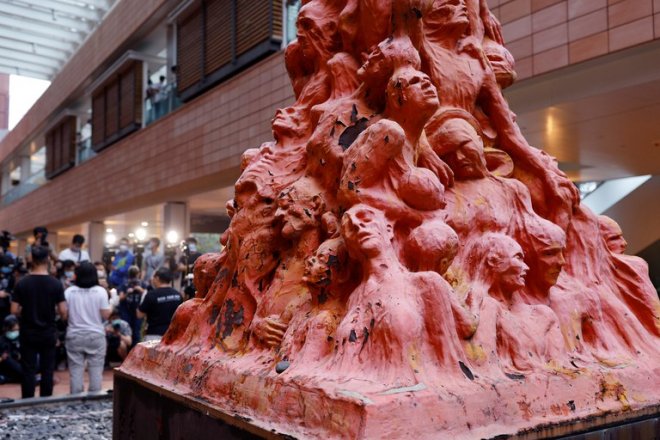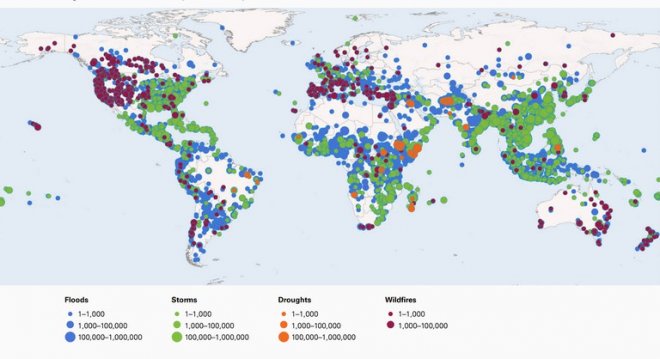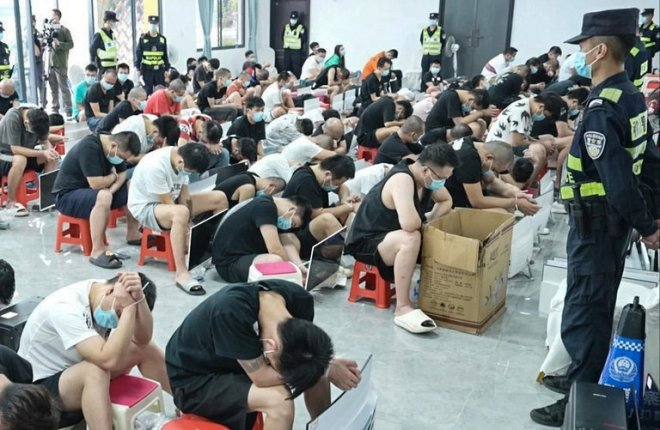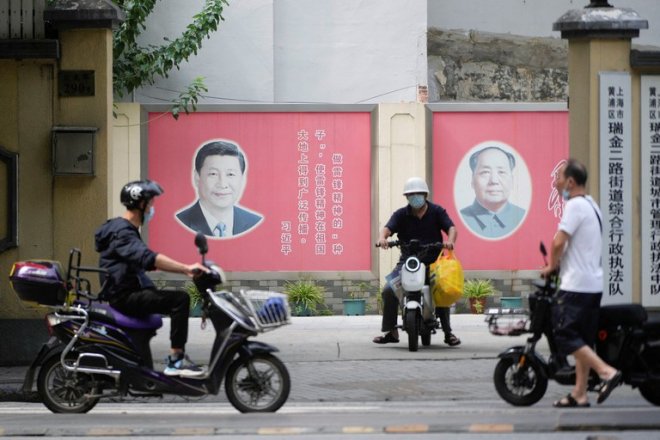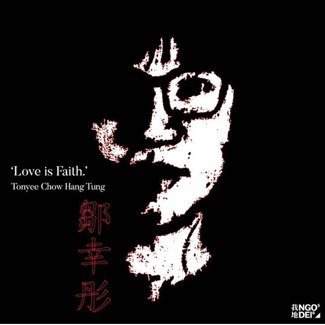Overseas Chinese students call for probe into fate of Beijing 'bridge man' protester
Chinese nationals studying in overseas universities have called on the international community to find out what happened to a protester who hung a banner calling for the removal of Communist Party leader Xi Jinping on a Beijing overpass on the eve of last month"s party congress.
The protester, who was last seen in a video clip being loaded into a police car at the scene on Oct. 13, has been named as Peng Lifa, who used the handle Peng Zaizhou on social media, in a literary reference to popular anger with governments.
Peng"s protest sparked sporadic signs of support in overseas universities, although students cited the risk of reprisals against their families back home if they made their identities known.
"The Chinese Communist Party has basically "disappeared" Peng Zaizhou," exiled dissident Wang Jingyu, who is currently in the Netherlands, told RFA.
"I appeal to the international community to directly ask the Chinese government about Peng Zaizhou"s whereabouts."
He called on overseas Chinese democracy activists to protest outside Chinese embassies, calling for Peng"s immediate and unconditional release.
U.S.-based student Han Yutao, who has detailed repeated harassment of his family in China since he showed his face and real name on a video in support of Peng, said the lone protest had struck a chord with many young Chinese overseas.
"In a society like China"s that has institutionalized human beings, the Communist Party has been suppressing young people for a long time, rubbing off any edges they once had," Han told RFA. "The Peng Lifa incident reignited young people"s enthusiasm, and this will continue for as long as they live."
![]() A Chinese student, who gave only the initial W for fear of reprisals, and a friend stage a piece of performance art with their eyes and mouths covered to protest the treatment of the woman found chained in an outbuilding in Jiangsu, China, in February 2022. Credit: Provided by W
A Chinese student, who gave only the initial W for fear of reprisals, and a friend stage a piece of performance art with their eyes and mouths covered to protest the treatment of the woman found chained in an outbuilding in Jiangsu, China, in February 2022. Credit: Provided by W![]() "Spontaneous action"
"Spontaneous action"
Meanwhile, on the campus of the University of Southern California, a Chinese student who gave only the initial W for fear of reprisals told RFA that she had put up posters on campus in support of Peng on Oct. 25.
She and a friend later also staged a piece of performance art with their eyes and mouths covered to protest the treatment of the woman found chained in an outbuilding in the eastern province of Jiangsu, who became a national symbol of gender inequality after a video clip of her discovery went viral in February.
"There was no organization," W told RFA. "It was just spontaneous action by some students."
"I did it myself on two occasions -- one time I put up posters [supporting Peng] and another time I put on a performance art event about the woman in chains," she said. "Those two times were basically with different friends."
She said the performance art came out of discussions about the chained woman with friends on Instagram, and had been interrupted by an unidentified man who claimed she couldn"t prove the facts of the story, and appeared "unfriendly."
A fellow SoCal student who gave only the surname Zhang said the majority of Chinese students are still highly supportive of the Chinese Communist Party, at least in public.
But the lone bridge protest in Beijing had possibly changed a few minds, he said.
"The majority [of Chinese students] support the Communist Party in our school," Zhang said. "Most Chinese students studying overseas don"t care about politics."
"But judging from the situation in recent months, there are more and more people opposing the Chinese government, or more and more with the courage to speak out," he said. "I think that proportion could continue to rise in future."
![]() The Chinese student, W, has also put up posters in October 2022 on the campus of the University of Southern California in support of Peng Lifa, the Beijing bridge protester. Credit: Provided by W
The Chinese student, W, has also put up posters in October 2022 on the campus of the University of Southern California in support of Peng Lifa, the Beijing bridge protester. Credit: Provided by W![]() Privileged families
Privileged families
According to W, even those who do take part in poster and leafleting campaigns do so anonymously, and many come from families that are considered privileged in today"s China.
"Living and studying in the United States, we don"t have to worry about the basic issues of food, housing and clothing," W said. "We could still have a good life and find a job without bothering with [politics]."
"But I have the sense that I could also be saving myself ... It was very painful for me to see news reports that everyone had lost their freedom due to certain policies, and that some people had died [for lack of medical attention] or were jumping off buildings, as well as the suppression of dissenting voices," she said, in a reference to the Chinese government"s zero-COVID policy.
"If people like us, who run fewer risks overseas, just enjoy life and never speak out, won"t that just lead to more suffering back home?" W said. "Do we expect those who run greater risks or are in danger to resist instead?"
"Given that we have this privilege, I think we should use it to do something we think is necessary," she said. "It"s my responsibility."
Zhang said he had experienced solidarity from other overseas students from different countries while protesting on campus.
"A lot of people probably know what is going on in China, although many Americans still don"t," he said. "The first step is to let them know about the human rights abuses that are going on in China."
Translated and edited by Luisetta Mudie.
[圖擷取自網路,如有疑問請私訊]
The protester, who was last seen in a video clip being loaded into a police car at the scene on Oct. 13, has been named as Peng Lifa, who used the handle Peng Zaizhou on social media, in a literary reference to popular anger with governments.
Peng"s protest sparked sporadic signs of support in overseas universities, although students cited the risk of reprisals against their families back home if they made their identities known.
"The Chinese Communist Party has basically "disappeared" Peng Zaizhou," exiled dissident Wang Jingyu, who is currently in the Netherlands, told RFA.
"I appeal to the international community to directly ask the Chinese government about Peng Zaizhou"s whereabouts."
He called on overseas Chinese democracy activists to protest outside Chinese embassies, calling for Peng"s immediate and unconditional release.
U.S.-based student Han Yutao, who has detailed repeated harassment of his family in China since he showed his face and real name on a video in support of Peng, said the lone protest had struck a chord with many young Chinese overseas.
"In a society like China"s that has institutionalized human beings, the Communist Party has been suppressing young people for a long time, rubbing off any edges they once had," Han told RFA. "The Peng Lifa incident reignited young people"s enthusiasm, and this will continue for as long as they live."
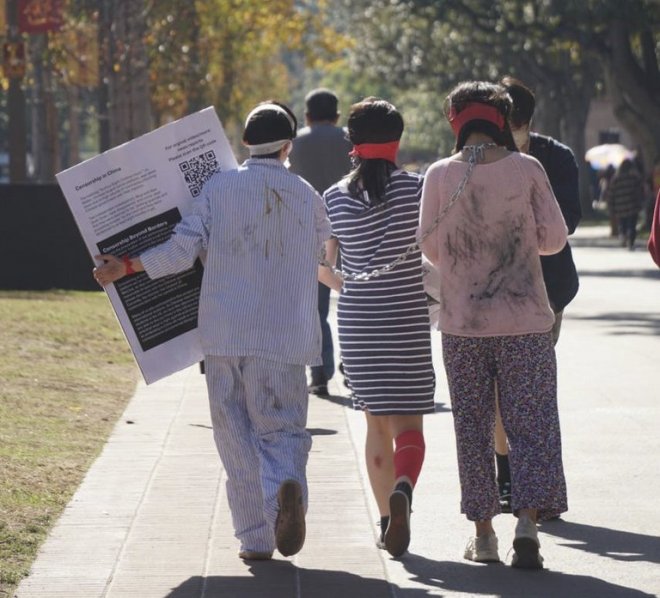 A Chinese student, who gave only the initial W for fear of reprisals, and a friend stage a piece of performance art with their eyes and mouths covered to protest the treatment of the woman found chained in an outbuilding in Jiangsu, China, in February 2022. Credit: Provided by W
A Chinese student, who gave only the initial W for fear of reprisals, and a friend stage a piece of performance art with their eyes and mouths covered to protest the treatment of the woman found chained in an outbuilding in Jiangsu, China, in February 2022. Credit: Provided by W "Spontaneous action"
"Spontaneous action"Meanwhile, on the campus of the University of Southern California, a Chinese student who gave only the initial W for fear of reprisals told RFA that she had put up posters on campus in support of Peng on Oct. 25.
She and a friend later also staged a piece of performance art with their eyes and mouths covered to protest the treatment of the woman found chained in an outbuilding in the eastern province of Jiangsu, who became a national symbol of gender inequality after a video clip of her discovery went viral in February.
"There was no organization," W told RFA. "It was just spontaneous action by some students."
"I did it myself on two occasions -- one time I put up posters [supporting Peng] and another time I put on a performance art event about the woman in chains," she said. "Those two times were basically with different friends."
She said the performance art came out of discussions about the chained woman with friends on Instagram, and had been interrupted by an unidentified man who claimed she couldn"t prove the facts of the story, and appeared "unfriendly."
A fellow SoCal student who gave only the surname Zhang said the majority of Chinese students are still highly supportive of the Chinese Communist Party, at least in public.
But the lone bridge protest in Beijing had possibly changed a few minds, he said.
"The majority [of Chinese students] support the Communist Party in our school," Zhang said. "Most Chinese students studying overseas don"t care about politics."
"But judging from the situation in recent months, there are more and more people opposing the Chinese government, or more and more with the courage to speak out," he said. "I think that proportion could continue to rise in future."
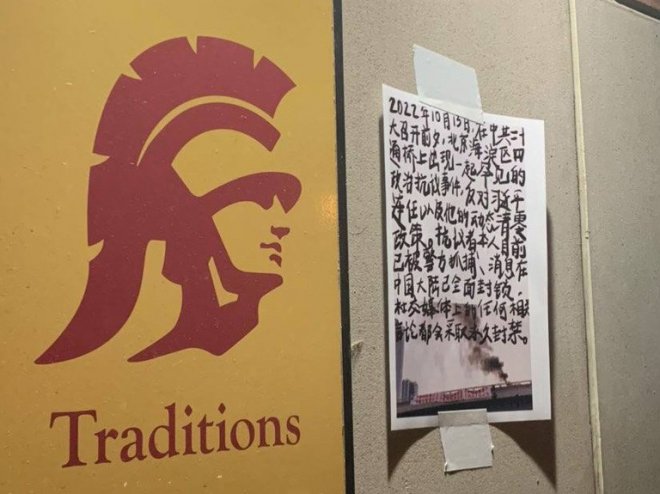 The Chinese student, W, has also put up posters in October 2022 on the campus of the University of Southern California in support of Peng Lifa, the Beijing bridge protester. Credit: Provided by W
The Chinese student, W, has also put up posters in October 2022 on the campus of the University of Southern California in support of Peng Lifa, the Beijing bridge protester. Credit: Provided by W Privileged families
Privileged familiesAccording to W, even those who do take part in poster and leafleting campaigns do so anonymously, and many come from families that are considered privileged in today"s China.
"Living and studying in the United States, we don"t have to worry about the basic issues of food, housing and clothing," W said. "We could still have a good life and find a job without bothering with [politics]."
"But I have the sense that I could also be saving myself ... It was very painful for me to see news reports that everyone had lost their freedom due to certain policies, and that some people had died [for lack of medical attention] or were jumping off buildings, as well as the suppression of dissenting voices," she said, in a reference to the Chinese government"s zero-COVID policy.
"If people like us, who run fewer risks overseas, just enjoy life and never speak out, won"t that just lead to more suffering back home?" W said. "Do we expect those who run greater risks or are in danger to resist instead?"
"Given that we have this privilege, I think we should use it to do something we think is necessary," she said. "It"s my responsibility."
Zhang said he had experienced solidarity from other overseas students from different countries while protesting on campus.
"A lot of people probably know what is going on in China, although many Americans still don"t," he said. "The first step is to let them know about the human rights abuses that are going on in China."
Translated and edited by Luisetta Mudie.
[圖擷取自網路,如有疑問請私訊]
|
本篇 |
不想錯過? 請追蹤FB專頁! |
| 喜歡這篇嗎?快分享吧! |
相關文章
AsianNewsCast









